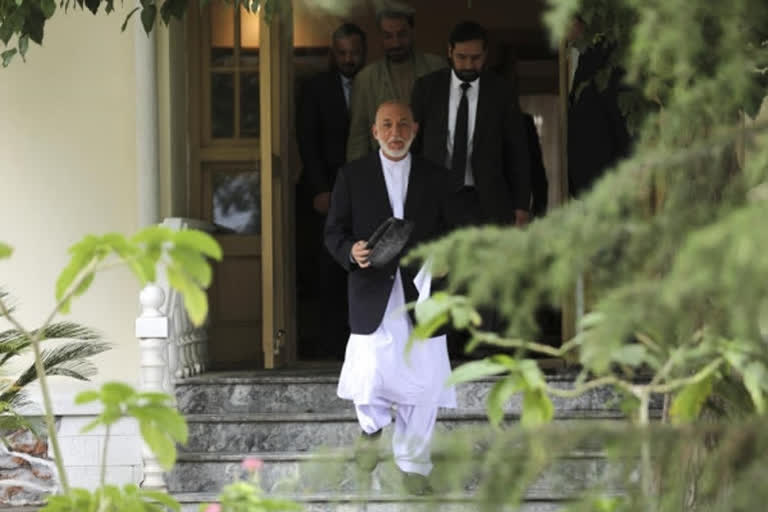Doha (Qatar): Senior Afghan leaders are in the Middle Eastern state of Qatar talking peace with the Taliban, whose leader on Sunday issued a statement saying the insurgent movement wants a political settlement to Afghanistan's decades of war. Still, there are few signs of a political agreement on the horizon, as the battles over Afghan districts continue in dozens of provinces and in the cities, there are thousands seeking visas to leave.
Most are frightened that the final withdrawal of U.S. and NATO troops after nearly 20 years will plunge their war-ravaged nation into deeper chaos. Militias with a brutal history have been resurrected to fight the Taliban but their loyalties are to their commanders, many of whom are U.S.-allied warlords, whose followings are often ethnic-based. This has raised the spectre of deepening divisions between Afghanistan's many ethnic groups. Most Taliban are ethnic Pashtuns and in the past, there have been brutal reprisal killings by one ethnic group against another.
Meanwhile, in his statement ahead of Tuesday's Eid al Adha Islamic holiday, Mawlawi Hibatullah Akhundzada, the Taliban leader, said the Islamic Emirate, as the Taliban called their government during their rule that ended with the U.S.-led coalition invasion in 2001, favoured a political settlement. “In spite of the military gains and advances, the Islamic Emirate strenuously favours a political settlement in the country, and every opportunity for the establishment of an Islamic system,” he said.
But there are no signs that either side has softened its position, even as the highest-level delegation ever sent by Kabul, headed by Abdullah Abdullah, the chief of the country's national reconciliation council, is in Doha to jumpstart peace negotiations that have laid dormant for months. Akhunzada's statement refers repeatedly to the Islamic Emirate and yet that name is a source of contention.
Read: Pak PM evades question on Taliban, blames 'RSS ideology' for stalled talks with India
